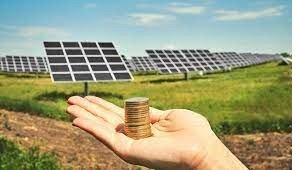How to Invest in Clean Energy Startups for Future Returns 2023

Climate change and the increasing demand for sustainable solutions have given rise to the booming clean energy industry. Investing in clean energy startups not only aligns with ethical and environmental values but also offers the potential for substantial financial gains. This article delves into the strategies and considerations for investing in clean energy startups to secure future returns.
The global shift towards clean energy sources has created an unprecedented opportunity for investors to support sustainable initiatives while also realizing attractive financial returns. As traditional energy sources face scrutiny due to environmental concerns, investing in clean energy startups presents an avenue to contribute to positive change and secure future profits.
The Clean Energy Landscape
Clean energy encompasses various renewable sources such as solar, wind, hydro, geothermal, and bioenergy. These sources generate power with minimal impact on the environment, reducing carbon emissions and dependency on fossil fuels. The increasing adoption of clean energy technologies has set the stage for innovative startups to revolutionize the energy sector.
Why Invest in Clean Energy Startups?

Investing in clean energy startups offers multiple compelling reasons. Beyond the potential for lucrative returns, it allows investors to actively participate in the transition to sustainable energy solutions. As governments and industries commit to reducing carbon footprints, startups are positioned to address critical energy challenges while enjoying substantial market demand.
Assessing Investment Risks
Like any investment, clean energy startups carry inherent risks. Technological uncertainties, regulatory shifts, and market competition can impact the success of a startup. However, thorough research, diversification, and strategic planning can mitigate these risks and enhance the likelihood of favorable returns.
Steps to Invest in Clean Energy Startups
Research and Education
Understanding the clean energy sector is essential. Investors should research various technologies, market trends, and emerging startups. This knowledge empowers investors to make informed decisions and identify startups with high growth potential.
Diversification of Portfolio
Diversifying investments across different clean energy sectors and startups can spread risk and optimize returns. By investing in a range of technologies and business models, investors can balance potential losses with substantial gains.
Understanding Government Policies and Incentives
Government policies and incentives play a crucial role in the clean energy industry. Investors should familiarize themselves with subsidies, grants, and tax incentives available to startups. These measures can significantly impact the financial viability of investments.
Due Diligence on Startups
Thorough due diligence is paramount before investing. Analyze a startup’s technology, business plan, competitive landscape, and management team. Startups with strong leadership and innovative solutions are more likely to succeed.
Funding Rounds and Investment Options
Seed Funding
Seed funding is the initial stage of investment where founders use their resources to develop a prototype or proof of concept. Investing at this stage can yield substantial returns if the startup progresses successfully.
Series A, B, C Funding
As startups grow, they seek additional rounds of funding to scale their operations. Each series represents a different growth phase. Investing in these rounds can offer a chance to be part of a startup’s expansion.
Venture Capital and Private Equity
Venture capital and private equity firms specialize in investing in startups with high growth potential. They provide not only funding but also expertise and guidance to help startups succeed.
Building a Portfolio of Clean Energy Startups
Creating a diversified portfolio involves selecting startups with varying technologies and risk profiles. Some startups might focus on solar energy, while others might specialize in energy storage or grid optimization. A balanced portfolio increases the likelihood of overall success.
Long-Term vs. Short-Term Investments
Investors can choose between long-term and short-term investment strategies. Long-term investments involve holding onto stocks for an extended period, while short-term investments focus on capitalizing on short-lived opportunities.
The Role of Incubators and Accelerators
Incubators and accelerators provide startups with resources, mentorship, and networking opportunities. As an investor, supporting startups associated with reputable incubators can enhance the startup’s chances of success.
Evaluating Startup Viability

Innovative Technology
Startups that introduce disruptive technologies often have a competitive edge. Investing in startups with innovative solutions can lead to significant returns as their products gain traction.
Experienced Management Team
A startup’s leadership plays a vital role in its success. A team with industry expertise, a track record of success, and a clear vision increases the likelihood of achieving milestones.
Market Demand and Potential
Investors should evaluate the startup’s target market and the demand for its products or services. Startups addressing critical market needs have a higher chance of success.
Monitoring and Managing Investments
Investing in startups requires ongoing monitoring and management. Staying informed about a startup’s progress, market trends, and industry developments helps investors make timely decisions.
Successful Clean Energy Startup Investments
Solar Power Innovations
One notable success story is a startup that developed highly efficient solar panels using innovative materials. As solar energy demand grew, the startup secured partnerships with major utility companies, resulting in substantial returns for early investors.
Wind Energy Disruption
Another startup focused on improving wind turbine efficiency through advanced blade designs. Its technology significantly increased energy output, attracting investments from both traditional energy players and environmentally conscious investors.
Energy Storage Solutions
A startup specializing in grid-scale energy storage developed a breakthrough battery technology. As the energy sector increasingly values storage solutions, this startup’s innovation led to impressive financial gains for its backers.
Potential Challenges and Mitigation
Regulatory Changes
Government policies can change, affecting the clean energy industry. Investing in startups with adaptable business models can help mitigate the impact of regulatory shifts.
Technological Risks
Clean energy startups often rely on cutting-edge technologies that come with uncertainties. Thorough due diligence and ongoing assessment can help manage technological risks.
Market Competition
The clean energy sector is competitive, with numerous startups vying for market share. Investing in startups with unique value propositions and strong market positioning can mitigate the effects of competition.
Tax Benefits and Incentives

Investing in clean energy startups can also offer tax benefits and incentives. Depending on the jurisdiction, investors may qualify for tax credits, deductions, or other financial perks.
Conclusion
Investing in clean energy startups presents a dual opportunity: contributing to a sustainable future and achieving attractive financial returns. By following a well-researched approach, diversifying investments, and staying informed, investors can play a pivotal role in shaping the clean energy landscape while securing their financial future.
Read more : 7 Best Automation to Increase Your Daily Productivity
FAQs
Is investing in clean energy startups risky?
Investing in startups carries inherent risks, but thorough research and diversification can mitigate those risks.
How can I stay updated on market trends?
Stay informed through industry publications, conferences, and networking with experts in the field.
What tax benefits can I expect as an investor?
Tax benefits vary by jurisdiction and may include credits, deductions, or other incentives.
Can I invest in clean energy startups with a small budget?
Yes, some startups offer entry-level investment opportunities, allowing individuals with varying budgets to participate.
What is the potential for returns on clean energy startup investments?
Returns can vary widely, but successful startups addressing critical market needs can yield substantial profits.
Read more : How to Utilize Artificial Intelligence for Personal Assistants in 2023







